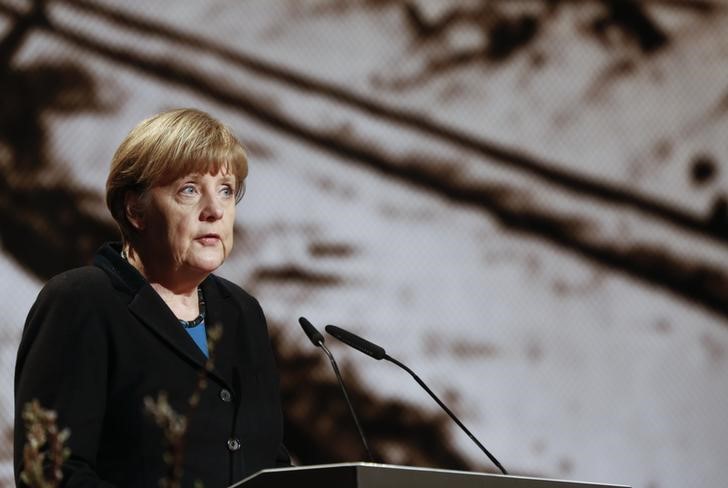BERLIN (Reuters) - Germany's Angela Merkel, who has repeatedly warned of renewed anti-Semitism in Europe, will visit a synagogue in Budapest and discuss political issues including racism while on a visit to Hungary's Prime Minister Viktor Orban next Monday.
The chancellor's spokesman Steffen Seibert said on Wednesday the two leaders would discuss bilateral and European matters, but added that "domestic political developments in Hungary are always on the agenda when the chancellor meets Mr Orban".
Hungary's far-right Jobbik party, which espouses a Hungarians-first policy largely directed against the Roma minority, has become the second most popular party in the country in the past decade, after Orban's centre-right Fidesz.
Although Jobbik leaders have softened anti-Jewish rhetoric and now avoid expressing such sentiments explicitly, the party's rise is seen as having allowed the break down of taboos surrounding anti-Semitism.
"The risk of xenophobia has to be recognised wherever it exists in Europe and repudiated everywhere in Europe, and that counts for Germany as in other European Union countries," said Seibert.
"The fact that a group that won almost 20 percent at the last election certainly contains xenophobic elements has to be a cause of concern to us," he added.
Orban overcame resistance from within his government to acknowledge Hungary's role in the Holocaust on Monday, saying many people in the country acted "shamefully" in World War Two.
Speaking at a memorial for Jewish soldiers who died defending Hungary's borders during World War One, Orban said Hungary also owed respect to the Jews whose deportation it helped to organise 30 years later.

Since the war, anti-Semitism has remained a big problem in Hungary, home to one of the largest Jewish communities in Europe.